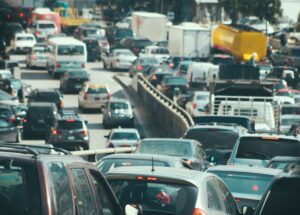What is the Annual Economic Impact of Automobile Accidents?
Motor vehicle accidents cost the U.S. approximately $230 billion each year. Along with the cost of human life and catastrophic injury, automobile accidents lead to economic losses such as medical expenses, employee absenteeism, lost productivity, and interruptions to the workforce. On average, American employers lose $740 per employee in off-the-job traffic wreck expenses annually.
Human error is the cause of 98%of car accidents. Financial impacts to the American and global economies could be reduced through enhanced safety measures, including graduated driver’s licensing programs for young drivers, stricter seat belt and child safety seat laws, and requirements for advanced safety features in vehicles.
How Much Are Automobile Accidents Costing the United States Each Year?
The U.S. General Services Administration reports 6.4 million traffic accidents annually across the country, resulting in a motor vehicle-related fatality every 13 minutes. In 2019, an estimated 36,500 people were killed, another 4.5 million were injured, and 23 million vehicles sustained damage due to motor vehicle accidents.
Injuries, fatalities, and property damage place a heavy economic burden on American society each year. Figures from a 2019 report from the National Highway Traffic Safety Association revealed the following:
- The U.S. spent $340 billion dollars on accident-related costs, equating to $1,035 for every one of the 328 million Americans living in the United States that year.
- Traffic accidents accounted for 1.6% of the $21.4 trillion earnings from gross domestic production in 2019.
- American taxpayers contributed $30 billion and paid for 9% of accident expenses, which is the equivalent of $230 per U.S. household.
West Virginia, New Mexico, Alaska, and Louisiana had the highest per capita state costs for fatal auto accidents in 2019, while New York, California, Minnesota, Nebraska, and Texas had the lowest.
What Economic Expenses Are American Taxpayers Assuming Due to Automobile Accidents?
Citizens who were not directly involved in an accident bore the burden of 75% of crash costs in 2019 through rising insurance premiums, increased taxes, time lost, excess fuel consumption, and environmental impacts. Expenses that taxpayers covered included:
- Medical costs
- Wage and productivity losses
- Legal fees and court costs
- Property damage
- Workplace losses
- Administrative expenses
A 2021 report by the National Safety Council broke down how much an accident costs based on the severity of injuries and property damage. These numbers reflect the average economic costs associated with accidents leading to:
- Death: $1.8 million
- Disability: $155,000
- Evident Injuries: $40,000
- Possible Injuries: $24,000
- No injuries: $6,700
- Property damage cost per vehicle: $5,700
What Factors Contribute to the High Economic Impact of Automobile Accidents?
Distracted driving, motorists’ failure to use proper safety restraints, driving under the influence, and excessive speeding contributed disproportionally to the costs associated with all traffic accidents:
Distracted Driving
Motorists who were distracted while driving, including those eating, drinking, using a cell phone, or adjusting the radio, contributed to 10,546 fatalities and 1.3 million nonfatal injuries in 2019. Distracted driving accounted for 29% of all motor vehicle-related accidents that year, costing the United States $98.2 billion.
Lack of Proper Use of Safety Restraints
In 2019, 3% of crash costs could be attributed to drivers or passengers who were not using a seat belt at the time of an accident, costing Americans $11 billion in preventable expenses. Between 1975 and 2019, American taxpayers saved an estimated $17.8 trillion due to increased safety belt use.
Driving Under the Influence
In addition to causing more than 14,000 fatalities and 497,000 injuries in 2019, alcohol-related accidents resulted in $68.9 billion in economic costs and accounted for 20% of all motor vehicle accident expenses. Crashes in which the driver’s blood alcohol content (BAC) was over the legal limit of .08 were responsible for 90% of costs associated with crashes involving alcohol.
Excessive Speed
Speed-related accidents cost the U.S. economy $46 billion in 2019, averaging $141 per U.S. citizen that year.
How Do Work Loss Costs Drive up the Economic Impact of Automobile Accidents in the U.S.?
Work loss refers to an estimate of how much a person would have earned over the course of a lifetime if they weren’t injured or killed in a motor vehicle accident. This includes an individual’s total estimated lifetime salary, benefits, and the estimated value of domestic work for which they would have contributed to the household. The Centers for Disease Control data from 2018 shows that the U.S. spends approximately $55 billion dollars on medical expenses and work loss costs combined each year.
Crashes disproportionally kill and injure younger Americans, with motor vehicle accidents being the leading cause of death for Americans 1 to 35. Costs-over-lifetime expenses are much higher and contribute more significantly to the overall expense of automobile accidents in the country as a result. The average cost of lost work productivity over a lifetime is estimated to be $10.69 million for those killed in car wrecks.
Do Automobile Accidents Impact Work Loss and the Global Economy?
The economic fallout of automobile accidents isn’t just an American problem. It also affects the larger global economy, costing the world approximately $518 billion in U.S. currency each year. The economic impact is higher for wealthy countries than for developing nations due to expense-of-living costs. One-quarter of the losses associated with traffic crashes globally stem from workplace productivity loss.
The agriculture, forestry, land transportation, mining, heavy construction, and automobile sales and repair industries carry the heaviest economic burden for motor vehicle accidents.
Can Anything Be Done To Drive Down the Economic Costs Associated With Motor Vehicle Accidents?
Several strategies have been shown to work in lessening the economic burden of automobile accidents and saving lives. Preventative measures include:
- Graduated driver’s licensing programs for teen drivers
- DUI sobriety checkpoints
- Mandatory ignition interlock devices for past DUI offenders
- Strong seat belt and child safety seat laws
- Advanced vehicle safety features such as airbags, electronic stability control, rollover protection, and automatic crash notification
Coping with the Economic Loss of an Accident
If you or your household has been affected by economic losses due to a motor vehicle accident, you may have legal recourse to recover damages from lost wages, medical bills, vehicle repair or replacement, and loss of employment. A personal injury lawyer can explain your rights and help you receive fair compensation for your injuries.
Sources
U.S. General Services Administration Office of Motor Vehicle Management
National Highway Traffic Safety Association
Centers for Disease Control- State-Specific Costs
Centers for Disease Control- Cost of Injury Data, 2019
Centers for Disease Control- Number of Injuries & Associated Costs, 2021









